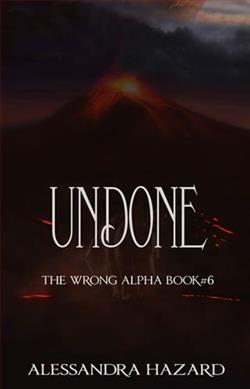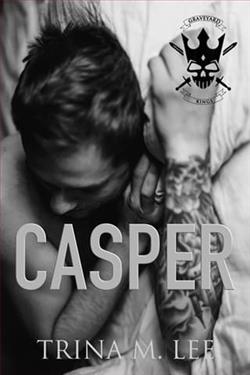Page 38 of The Monster's Daughter
Not because I believe.
But because hope is the only weapon I have left.
CHAPTER 23
BELLA
Seven years.
That’s how long it’s been since the war spat me out, broken and stitched together wrong. Since I last saw smoke curling up from a battlefield, tasted blood in my throat, or heard Kage’s voice tearing through the chaos.
Now, my battlefield is chlorinated water and screaming tourists.
The wave pool at Glimner’s “Resort of Eternal Sun” is packed shoulder-to-shoulder with bodies slick with sunscreen and cheap cocktails. The sky above isn’t real—it’s a projection dome cycling between endless cerulean blue and a lazy sunset haze—but the heat on my skin is real enough, and the laughter rolling across the deck makes my teeth ache.
I sit in the lifeguard’s chair, high above it all, red whistle hanging from my neck like some ironic medal of honor. My silver arm glints when the light hits it just right, smooth and seamless where flesh should be. It looks sleek, almost beautiful. Inside, it hums, alive. I hate it.
Kid jumps off the high ledge wrong—legs flail, head smacks water. Before I even think, I’m in.
The water swallows me whole, cool and heavy. Chlorine burns my nose. My muscles move on instinct, all those battlefield dives into muck and blood rewired into pool rescues and CPR. My silver arm slices through the water faster than flesh ever could. I grab the kid, pull him up, drag him coughing to the edge where his drunk dad claps too hard and sloshes beer on me.
“Thanks, sweetheart!” the man bellows, like I just fetched him another drink.
I don’t answer. Just haul myself out, water dripping down my tank top, silver gleaming against tanned skin. The whistle feels heavier around my neck.
Another life saved. Another inch deeper into the hole inside me.
When my shift ends, I walk the boardwalk with the crowd, sandals slapping on plasteel, the scent of fried kelp and sugar drinks making my stomach turn. My left arm feels heavier with every step, like it knows it doesn’t belong. Alliance doctors poked at it for months—scanned, sliced, prodded. “It’s not prosthetic,” they’d said. “It’s… alive.”
No shit.
They couldn’t remove it. Or maybe they didn’t want to. I stopped letting them try after the fifth surgery nearly killed me.
Now, I wear long sleeves when I can. Pretend it doesn’t exist. Pretend I’m just another sunburned body on a moon built for pretending.
But when I reach my apartment—a narrow two-room box stacked between a noodle shop and a pawn dealer—the pretending ends.
Because the first sound I hear isn’t the hum of artificial air.
It’s my daughter’s giggle.
Natalie is sprawled on the ceiling when I walk in, tiny fingers and toes clinging to the textured panel like a gecko. She beams at me, eyes shifting from blue to green in the dim light.
“Mama! Look! I’m a starfish!”
“Get down before you fall and crack your head open,” I mutter, but my throat tightens with something sharp and tender.
She drops lightly, knees bending, landing with a grace no human toddler should have. She skitters across the floor and crashes into me, wrapping arms around my waist. I bury my face in her hair, damp and smelling like soap and bubble gum.
“You’re late,” she says, muffled against my shirt.
“Had to save some idiot from drowning,” I answer, brushing a strand of coppery-red from her forehead. Her hair shines like mine, but when the light shifts, scales ripple faint beneath her skin.
I pretend not to see.
Natalie isn’t like the other kids. She climbs walls. She can hold her breath underwater for a terrifyingly long time. Sometimes her skin flickers, shifting texture, like scales remembering themselves.
But no one notices.















